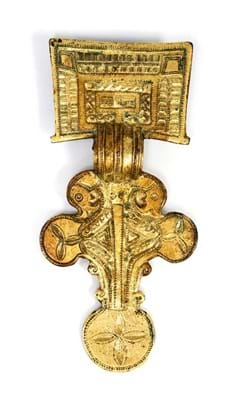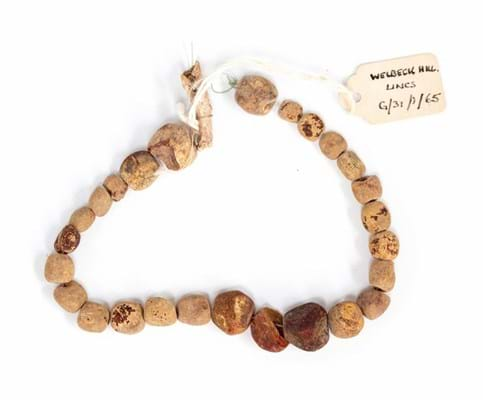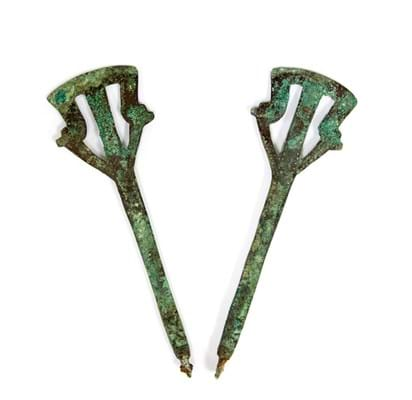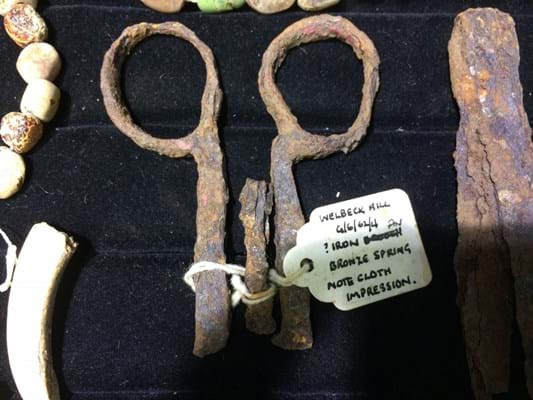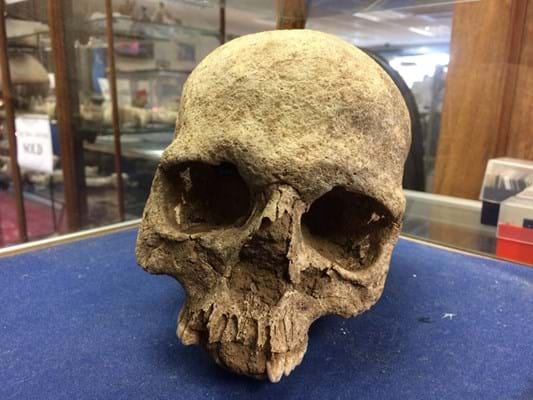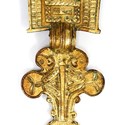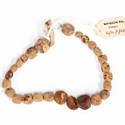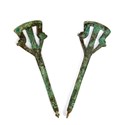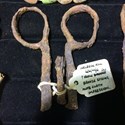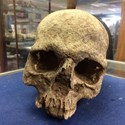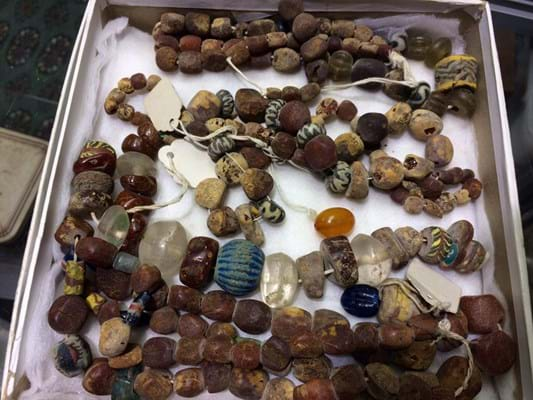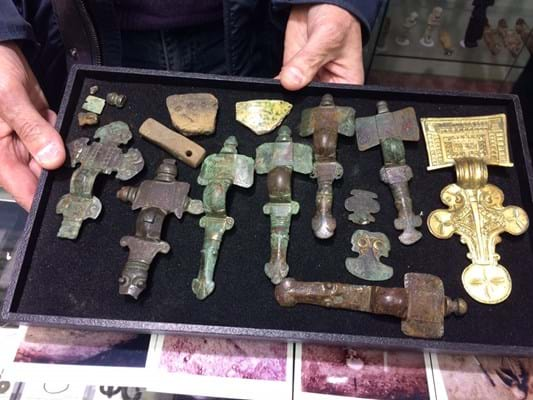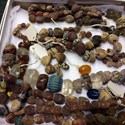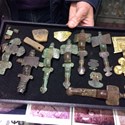The 250-strong group on offer from Hansons of Etwall features items from a pagan cemetery of the era.
This hoard - including a great square-headed gilt brooch with cloth attached, cruciform brooches, pots, knives, a spear head with attachment for a pennant, skeleton and bracteates (pendants) incorporating runic characters from the early Teutonic alphabet - is to be sold as one group by private treaty, with bids invited by June 1. The guide price is £50,000-80,000.
The group is accompanied by records and research which provide an insight into how the earliest Englishmen and women lived and died.
Fragment of femur
It all stems from one man’s discovery of a piece of bone and pot in a Lincolnshire field nearly 60 years ago.
Gordon Taylor, from Cleethorpes, was the man who came across the fragment of femur bone in 1962. He went on to lead an excavation of the important burial site at Welbeck Hill in the parish of Irby-on-Humber, Lincolnshire. The dig made national headlines and captivated scholars around the world.
More and more antiquities, dating back to 450-625AD, were gradually unearthed from 72 mainly female graves – including tweezers, scissors, jewellery, amber and pottery beads and a girdle-hanger, which resembled keys and symbolised women controlling the home.
Such was the fascination with the 1,500-year-old cemetery that students and archaeologists from the UK and overseas volunteered their services, both at the dig and to examine items.
Taylor died two years ago at the age of 88, leaving his collection behind in his home. It was found before treasure trove rules came into being, so he was able to keep it. Now his wife Muriel Taylor, 88, has put the collection up for sale.
Muriel, from Cleethorpes, said: “It’s so important to me that this collection stays together. I would like it to be preserved in a museum. It’s my late husband’s life work and a crucial part of England’s Anglo-Saxon history.”
She added: “Gordon used to enjoy field walking and, one day in 1962, came across a piece of femur bone and a fragment of Anglo-Saxon pottery on the surface. He consulted the farmer who owned the land to gain permission to dig. That was the start of a 17-year excavation.”
In an article for Grimsby Archaeological Society, Gordon Taylor wrote: “The early Anglo-Saxons burned or buried valuable personal possessions with their dead… Welbeck Hill has yielded finds of great importance including pottery, metalwork, jewellery, textiles, wood and other organic specimen… These objects were made and used by some of the first Englishmen.”
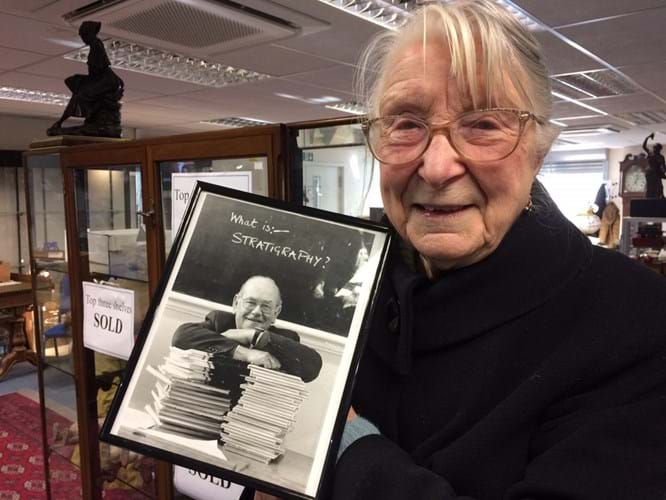
Muriel Taylor with a photo of her late husband, Gordon, whose Anglo-Saxon pagan cemetery collection is to be sold by Hansons in a private treaty deal.
Labour of love
For Gordon, a history teacher, it was a labour of love. He spent most of his spare time excavating the site and researching the finds, which came in thick and fast.
“He hadn’t studied archaeology before but was so excited about it,” said Muriel. “He was very, very busy with it all, documenting each find.
“Welbeck Hill was Gordon’s life. He did very well, considering he left school at 14 and didn’t pass his 11-plus. He was self-taught and eventually became a history teacher. His research was very thorough and academic which is shown in the extensive and meticulous recordings relating to the 72 excavated graves.”
Countless hours were spent at Welbeck Hill by the father-of-four. Gordon’s son, Geoff Taylor, remembers joining his dad at the dig – and finding an important pot. “A picture of me at the site when I was 10 years old was published in the paper,” he said.
Once-in-a-lifetime opportunity
Hansons’ antiquities expert James Brenchley said: “This has been a once-in-a-lifetime opportunity to work with the objects of a carefully and professionally excavated site of early British historical artefacts.
"This memorial collection of Anglo-Saxon material was part of a 5th-6th century cemetery three miles from Laceby in Lincolnshire.
“It includes important finds which help us to understand Anglo-Saxon life. The burials took place over a 200-year period. The material is extremely well documented with diary entries and photographs of the excavation.”
Library show tickets
The British Library's exhibition runs until Tuesday, February 19. Such is its popularity tickets for some sessions have sold out. Check the library website for details.


